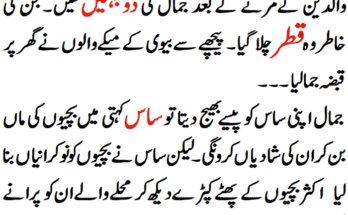Advertisements
Advertisements
Tipu Sultan, often hailed as the “Tiger of Mysore,” was one of India’s most formidable and respected rulers. His life was marked by unwavering courage, strategic brilliance, and a relentless pursuit of freedom from British colonial rule. Both in life and death, Tipu Sultan left an indelible mark on Indian history, symbolizing the spirit of resistance and independence. This article delves into the life of Tipu Sultan, his battles, and his enduring legacy.
**1. Early Life and Education
- Birth and Heritage: Born on November 20, 1751, in Devanahalli (present-day Bengaluru), Tipu Sultan was the eldest son of Sultan Hyder Ali, the ruler of Mysore. His mother, Fakhr-un-Nisa, was also from a prominent family, and Tipu’s upbringing was steeped in Islamic principles and martial training.
- Education: Tipu received an extensive education, which included subjects like theology, Islamic jurisprudence, and military strategy. His father ensured that he was well-versed in the art of war, and Tipu soon became proficient in horsemanship, archery, and swordsmanship.
**2. Rise to Power
- Inheritance of the Throne: After the death of Hyder Ali in 1782, during the Second Anglo-Mysore War, Tipu Sultan ascended the throne. He immediately took charge of his father’s unfinished war against the British, determined to defend his kingdom’s sovereignty.
- Consolidation of Power: Tipu worked to strengthen his kingdom by modernizing the military, improving administration, and fostering diplomatic ties with other regional powers, including the French, who provided military support against the British.
**3. Military Innovations
Advertisements


- Rocket Artillery: Tipu Sultan is credited with the development and deployment of rocket artillery in warfare, a technological innovation that gave his army a significant edge. These rockets were used effectively against British forces, making Tipu’s military one of the most advanced of its time.
- Fortifications and Naval Ambitions: Tipu focused on building strong fortifications across his kingdom and aspired to develop a powerful navy. Although his naval ambitions were never fully realized, his efforts demonstrated his understanding of the importance of naval power in defending his realm.
**4. The Anglo-Mysore Wars
- First and Second Wars: Tipu Sultan’s reign was dominated by his struggles against the British, marked by four major Anglo-Mysore Wars. The first two wars, led by his father and later by Tipu himself, were fierce and resulted in temporary victories for Mysore.
- Third Anglo-Mysore War: In the Third Anglo-Mysore War (1789-1792), Tipu faced a coalition of British forces, the Marathas, and the Nizam of Hyderabad. Despite his resistance, the war ended with the Treaty of Seringapatam, in which Tipu had to cede half of his kingdom and pay a hefty indemnity.
- Fourth and Final War: The Fourth Anglo-Mysore War in 1799 saw the final confrontation between Tipu Sultan and the British. Despite being vastly outnumbered, Tipu fought valiantly to defend his capital, Srirangapatna. His death in battle marked the end of an era and the fall of Mysore to British control.
**5. Tipu’s Vision for Mysore
- Economic Reforms: Tipu Sultan implemented numerous economic reforms to strengthen Mysore’s economy. He encouraged agriculture, trade, and industry, and sought to reduce the influence of European powers by fostering trade with the Ottoman Empire, France, and Persia.
- Social and Religious Policies: While Tipu Sultan was a devout Muslim, he was known for his relatively tolerant policies toward non-Muslims. He patronized Hindu temples and sought to maintain harmony within his diverse kingdom.
**6. The Death of a Tiger
- The Siege of Srirangapatna: The final battle at Srirangapatna was a testament to Tipu Sultan’s resolve. He refused to surrender and fought till his last breath, dying on May 4, 1799. His death was mourned across India, and he was remembered as a martyr who sacrificed his life for his land.
- Legacy of Valor: Tipu’s death marked the end of Mysore’s independence, but his legacy lived on. He became a symbol of resistance against British rule and an inspiration for future generations of Indian freedom fighters.
**7. Tipu Sultan’s Enduring Legacy
- Cultural Impact: Tipu Sultan’s legacy is preserved in Indian culture through literature, art, and folklore. His life and battles have been the subject of numerous books, films, and plays, ensuring that his story is passed down through generations.
- Memorials and Monuments: Across India, numerous memorials and monuments commemorate Tipu Sultan. His fortresses, palaces, and battlefields have become historical sites, attracting visitors and scholars alike





